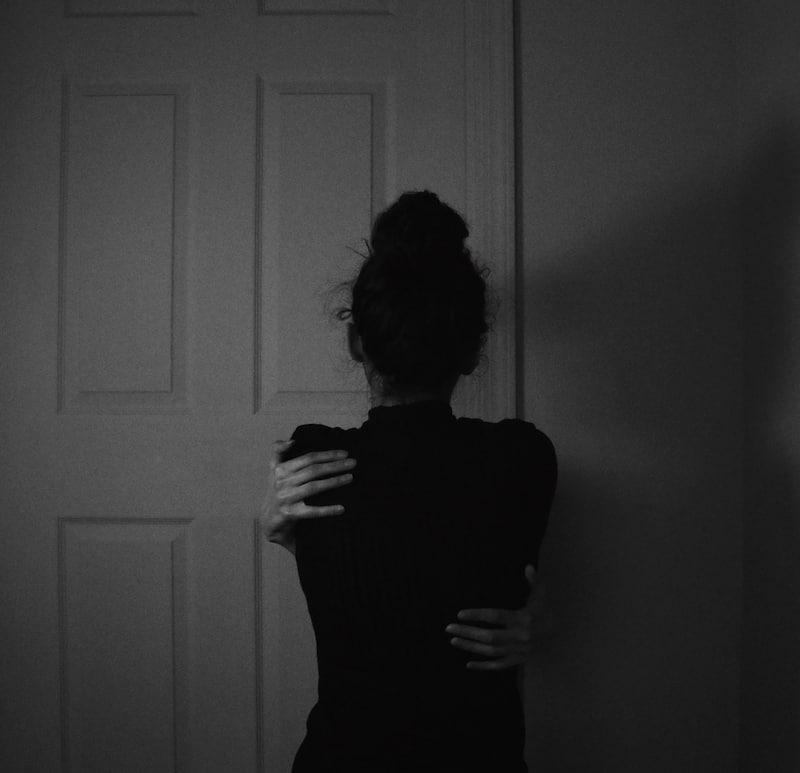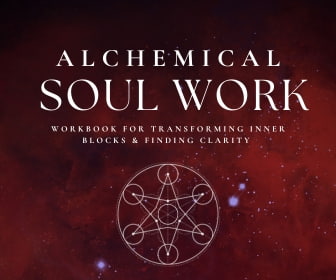Why do I refuse help from others? Why do I keep intentionally hurting myself? Why do I keep making the same mistakes over and over again?
How often have you asked yourself any of these questions?
Self-destructive behavior can be a daunting topic. It’s like a gremlin that lurks in the dark corners of existence, hiding in places we train ourselves to overlook and intentionally avoid.

Soul Work Compass Course:
Drifting through life without direction is exhausting. If you feel paralyzed by confusion or self-doubt, this course is your map out of the fog. We guide you safely through your inner darkness to uncover your true needs, values, beliefs, wounds, and sacred gift. Turn your confusion into crystal-clear direction and find your True North today.
But the more we put off facing our self-destructive behavior, the more it consumes us.
Are you ready to face the self-destructive parts of you? Remember that toxic behavior comes from only one part of you – it doesn’t define the whole of you.
(If you need more help after reading this article, I highly recommend checking out our Self-Love Journal and Shadow Work Journal to go deeper and help heal self-destructive tendencies.)
Table of contents
- What is Self-Destructive Behavior?
- Why Are We Self-Destructive? (+ My Experience)
- 17 Symptoms and Habits of Self-Destructive Behavior
- You’re Not Broken (You’re Just Human)
- Self-Destructive Behavior and the Journey of Self-Love
- How to Stop Being Self-Destructive (6 Pathways)
- Self-Destructive Tendencies Q&A
What is Self-Destructive Behavior?

Self-destructive behavior is any action carried out by an individual that causes them direct or indirect harm. This self-inflicted harm may be experienced on a physical, mental, or emotional level and creates immense suffering throughout their life. Examples of self-destructive behavior include workaholism, substance abuse, eating disorders, self-martyrdom, self-harm, and any behavior that negatively impacts a person’s life for which they aren’t actively trying to change or don’t feel worthy of overcoming.
Why Are We Self-Destructive? (+ My Experience)

I’m not the first, and I certainly won’t be the last person to admit that I’ve had self-destructive tendencies.
From pushing away the people I love and housing self-defeating mindsets to repeatedly self-harming in my teenage years, I’ve been down this dark alley more than once.
As I’ve grown, however, I’ve realized that self-destructive behaviors are an expression of the Shadow Self (aka, our ‘dark side’), which causes issues such as low self-esteem, low self-worth, and eventually self-loathing.
Want to get LonerWolf at the top of your Google search results?
While psychologists speculate that self-sabotaging behaviors could be coping mechanisms (i.e., to deal with stress, pressure, social demands, etc.), others consider self-destructive behavior as a way of maintaining comfort zones due to lack of confidence or feelings of unworthiness (e.g., staying at the familiar bottom of the social ladder).
17 Symptoms and Habits of Self-Destructive Behavior
Self-destructive behavior comes in many guises – some extreme, some more subtle.
Here are some of the most common symptoms and habits of self-destructive behavior:
1. Self-defeating mindsets
Self-defeating mindsets are typically unconscious forms of self-destructive behavior that result in self-fulfilling prophecies. Examples include harboring thoughts, usually on a subconscious level, such as, “I’m going to fail; I just know it,” “I’ll never get out alive,” “This will completely destroy me,” etc.
2. Failing to take action
Failing to take action may be passive, but it’s still self-destructive. When we know something is bad for us but fail to take any action or steps to remedy the issue, we are essentially setting ourselves up for (and guaranteeing) failure.
3. Over-eating
Over-eating usually appears as the habit of cramming ourselves full of sugary, fatty, and processed foods. This unhealthy habit can result in many long-term health issues (not to mention the short-term negative impacts on mood, sleep, creativity, etc.).
4. Under-eating
Many under-eaters fool themselves into thinking they’re benefiting themselves. The reality is that under-eating is usually a band-aid for serious self-image problems and other psychological issues.
5. Forced incompetence or over-committal
Forced incompetence means portraying yourself as unintelligent or incapable of successfully achieving something. This habit usually stems from a lack of confidence in your abilities and can function as a coping mechanism (e.g., to deal with academic pressure).
The opposite of forced incompetence is over-committal, where we commit to too many responsibilities, become “super capable,” and turn into workaholics, even though it burns us out and begins to feel soul-sucking very quickly.
6. Going out of your way to harm others
What goes around comes around, as they say, and the negative influence you have on others, whether by words or deeds, will eventually manifest in your own life (e.g., through sicknesses, tragedy, legal issues, isolation, etc.). On some level, we all know this truth, yet sometimes we go ahead and hurt others anyway.
Would you like to save this?
Your information will never be shared.
7. Physical self-harm
Physical self-harm is an extreme physical expression of self-destructive behavior. This practice is connected to low self-worth and the desire to cope with emotional pain in a physical way. Examples of physical self-harm include cutting, burning, and hitting oneself (or inciting others to do this to us, such as by intentionally provoking a fight). In extreme cases, physical self-harm can manifest as suicide attempts. (Please seek help from one of these hotlines if you do feel suicidal. There is always compassionate help available.)
8. Self-pity
Self-pity is an unconscious form of self-destructive behavior. It is destructive because it encourages us to remain inactive (i.e., wallowing in our misfortunes) rather than encouraging a proactive approach toward life.
9. Drug and alcohol abuse
Many people transform their anger into self-destructiveness—drinking their lives away or becoming oblivious in drugs or working too much. They make take it out on their children, employees, or animals. They may be passive-aggressive in a number of ways— being silent, uninvolved, offering insincere love and friendship, being available for people but making them suffer for it.
– Thomas Moore
A self-evident form of self-destructive behavior, drug and alcohol abuse creates endless misery in the lives of addicts and their friends and family members. Drug and alcohol abuse are usually connected to soul loss – or being disconnected from your soul.
10. Social self-alienation
While not always done consciously, social self-alienation is the act of deliberately isolating yourself from your peers. This could be through a variety of irritating, repelling, or antisocial behaviors that, on some level, you know are self-destructive.
11. Hiding from emotions
Failing to acknowledge negative (and sometimes positive) emotions creates a host of mental, emotional, and physiological illnesses. Hiding from emotions is another form of unconsciously manifested self-destructive behavior.
12. Refusing to be helped
Pushing away advice, refusing to go to rehab, avoiding the psychologist – all of these examples are signs of not wanting to be helped which is a reflection of the deep core belief that “I’m unworthy.” Refusing to be helped is a form of self-destructive behavior because it prevents growth and healing from occurring within you.
13. Unnecessary self-sacrifice
Some people are in love with their misery because that is all they have known for a large portion of their lives. Unnecessary self-sacrifice or being a martyr are good ways of making us feel “noble” and “altruistic” while masking the actual act of self-sabotage (which is giving up on the hopes, dreams, and passions that make us truly happy).
14. Spending too much
Whether through chronic gambling or constant Amazon purchases, overspending may seem unusual to include on this list, but it is nevertheless a form of self-destructive behavior that limits one’s freedom and peace of mind.
15. Physical neglect
Getting poor sleep, refusing to exercise, eating unhealthy food, and failing to maintain the general well-being of your body are all classic signs of common self-destructive behavior. Risky sexual behavior and poor personal boundaries are also a sign of physical neglect.
16. Mental neglect
Refusing, avoiding, or failing to confront your psychological health issues (e.g., stress, anxiety, depression, paranoia, OCD, etc.) delays the healing process, resulting in the perpetuation of long-term issues.
17. Sabotaging relationships
Sabotaging your relationships is a complex symptom as it involves many destructive behaviors such as jealousy, possessiveness, emotional manipulation, neediness, violence, and so forth. When we don’t feel worthy of love, we unconsciously manifest this in our relationships through the way we choose to behave.
You’re Not Broken (You’re Just Human)

If you identify with any or most of the above signs, you might feel your stomach sink, and a dark cloud of sadness or resentment may wash over you.
You might even start thinking that you’re fundamentally “broken” or that “something is severely wrong with you.”
But please understand that it’s normal to identify with many of the above signs. There’s nothing wrong with you. You’re not broken. You’re not a lost cause. You’re simply human. And that’s totally okay.
Why is it normal to possess many of the above self-destructive behavior signs? The answer is that most people have either been negatively programmed by their family or society or have unconsciously adopted these actions as a defense mechanism to protect against mental and emotional pain.
In other words, it’s not your fault and you aren’t to blame for your self-destructive behavior. But it IS your responsibility to work through it.
For over a decade, we've strived to make this website a haven of free, valuable information. Imagine a world where this knowledge wasn't readily available. If this post sparked a meaningful insight or helped you in any way, please consider a donation as a heartfelt "thank you" for keeping this resource free. Every contribution, big or small, allows us to keep giving back.
You didn’t choose to be self-destructive, did you? You didn’t think at some point, “Hmmm, I think I’m going to be self-destructive now,” did you? It’s just what happened.
The goal here isn’t to feel terrible about yourself. Instead, the goal is to see that “it is what it is” and find ways to reverse, undo, and overcome your self-destructive tendencies.
Self-Destructive Behavior and the Journey of Self-Love

The very fact that you’re here right now reading this guide is already a sign that you’re awakening out of the dream of self-destruction.
In other words, you’re starting to become more self-aware, and self-awareness is a sign that you’re spiritually awakening or at least you’re making self-care more of a priority in your life.
If you’ve been on a shadow work journey of working through your inner darkness, you may have come across some self-destructive behavior pattern within yourself, which is why you may find yourself here.
Going through the dark night of the soul is also another reason why you might find yourself exploring your self-destructive tendencies as you seek to find more meaning and deeper fulfillment in life.
Whatever the case, it’s helpful to understand that self-destruction is the opposite of self-love. And in many cases, our tendencies towards self-destructive behavior are totally unconscious and on autopilot because we were never taught how to love and value ourselves.
In the words of writer and speaker Alan Watts,
When you won’t love, or won’t let it out, it emerges anyway in the form of self-destruction. The alternative to self-love, in other words, is self-destruction. Because you won’t take the risk of loving yourself properly, you will be compelled instead to destroy yourself.
As such, we can see that learning how to love yourself is the antidote to self-destructive behavior.
How to Stop Being Self-Destructive (6 Pathways)
While I can’t give you a magical cure, I can give you some ideas, inspiration, and a few tried-and-tested paths to follow. Try all of these practices systematically or select a few and work with them consistently.
On average, it takes around 66 days to establish a new habit, according to what researchers have found. So make it your goal to stick with at least one of these activities for two months.
Here are the practices:
1. Grow your self-awareness by keeping a journal every day

Journaling has numerous mental health benefits, and it’s a powerful way of increasing your self-awareness. In fact, we could say that self-awareness is the most crucial ingredient in overcoming self-destructive tendencies! Read more about how to journal and the practice of self-awareness for more guidance. Our Self-Love Journal is a powerful place to begin if you want to get started right now.
2. Free yourself of compulsive, self-destructive behavior through meditation or mindfulness

There’s a reason why you keep hearing about these two practices, and it’s because they work! Even if you struggle to meditate traditionally, there are endless forms of mindfulness meditation out there that might spark your interest.
Examples of meditation/mindfulness activities include breathwork, walking meditation, mindful art therapy, chanting mantras, guided journeys, chakra visualization, etc.
If you don’t know where to start, I recommend downloading a meditation app such as InsightTimer, Calm, or Headspace. I started off with these apps, and they helped me tremendously. Bringing these key spiritual practices into your life can have profound benefits.
Try starting with 5-10 minutes in the morning or evening every day at the same time (to create a habit out of it).
Meditation and mindfulness are so effective because they help you to come back home to the present moment and create more inner space, which frees you from the compulsiveness and autopilot of self-destructive behavior.
3. Release your pent-up emotions by doing some emotional catharsis

Sometimes, the reason why we’re self-destructing is that a deeper emotion (such as anger, grief, or fear) isn’t being expressed.
Just think of a kettle: the more it boils, the more steam is released. But if that kettle had no way to release that steam, it would eventually explode! The same thing applies to you: you need a pressure valve, a way to channel your pent-up emotions.
When you don’t channel those buried emotions in a healthy way, they can come out in self-destructive behaviors.
So find something you enjoy doing that requires intense mental or physical effort. Examples include boxing, running, singing, dancing, creating art, or plain old screaming and crying (doing this privately is a good idea if you’re living with people!). One unconventional form of catharsis is called dynamic meditation.
4. Learn self-care and self-love through some simple habits

Self-love is a basic attitude of kindness toward yourself: it is the practice of taking care of your mental and emotional needs.
Self-care, on the other hand, is generally more oriented toward your body: it involves eating properly, getting enough sleep, drinking adequate water, wearing comfortable clothing, staying healthy, etc.
Both self-love and self-care go beautifully hand-in-hand as allies against self-destruction.
I understand that self-love may feel like a bit of a stretch for you, so if you want a place to start, begin with self-care.
Begin with even just one self-care practice each day and make it into a habit by doing it at the same time and same place.
For example, you could decide to take a morning walk at 7:30 am each day to help your body feel energized and relaxed. Or you could drink a cup of chamomile tea at the end of your day as a winding down self-care ritual.
You can find more ideas in my self-care ideas article. And if you’d like to practice self-love, I recommend my how to love yourself post, as well as our guided self-love journal.
5. Explore your core beliefs which are at the root of self-destructive behavior

Core beliefs are at the very root of self-destructive behavior because that which we think we often become. Whatever internal dialogue that runs around in our mind is often what dictates our behavior. After all, isn’t it true that we often act on what we believe to be true?

Feeling Lost?
The Alchemical Soul Work Workbook provides you with a clear path to clarity through the seven ancient stages of alchemy. With 50+ journaling prompts, you'll dissolve old patterns and forge a stronger connection with your Soul.
For example, if you carry the core belief that “no one will ever love me,” you will unconsciously and perhaps sometimes intentionally behave in ways that alienate other people so that they don’t hurt you, therefore reinforcing your belief that “no one will ever love me” because you don’t give others the chance to even try!
Core beliefs can be tricky because they’re usually unconscious and automatic, and yet, once we shine the light of our awareness onto them, we can see through them, change them, and find more freedom and peace.
Examples of core beliefs that can result in self-destructive behavior include:
- I am bad
- I am unlovable
- I am unworthy
- I always hurt people
- I am stupid
- I am weak
- I don’t deserve happiness
Core beliefs often start with the words “I am …” and they can be discovered through reflection, inquiry, and journaling. You can find out how to pinpoint yours in my core beliefs guide.
6. Sometimes, there’s a limit to what you can do, and you’ll need to find a coach, counselor, or therapist

If you have strong self-loathing or intense self-destructive tendencies, you might not even have the impulse to take on board any of the advice in this article (*ding ding!* that’s another form of self-destruction, but it’s okay, you’re only doing what you’ve been unconsciously programmed to do).
As such, my best advice is to find a coach, counselor, or therapist ASAP. Sometimes the best thing is to see our true worth in the mirror of another. Sometimes we need someone to hold our hands and actively guide us in a 1-to-1 way.
If this is the case, your search engine is your best friend. Look up the keywords “self-destructive behavior counselor near me,” and you’re bound to find someone who can help. If you’re fine with online sessions via places like Zoom, just use a keyword like “help for self-destructive behavior therapy” or look up “therapy near me.”
There’s only so much an article on the internet can do to help you. While you’ve taken a wonderful step towards health and healing, seeking out guidance in the form of a therapist or counselor will aid you with ongoing support and tools. These, in turn, will transform your life little by little. And soon, you’ll be able to look back on this behavior with a gentle smile and a sigh of relief, proud of your ability to overcome and heal.
Self-Destructive Tendencies Q&A

There are many reasons why someone might be self-destructive. On an emotional and psychological level, self-destructive tendencies may arise from childhood trauma, negative social conditioning, and low self-esteem that are due to having unsupportive or abusive parents, family members, or peers. On a spiritual level, self-destructive tendencies are due to soul loss or the disconnection from your true and authentic essence.
Examples of self-destructive behaviors include excessive self-sacrifice, over-eating or under-eating, sabotaging close relationships, smoking or drinking too much, drug abuse, and self-harm.
The first step to overcoming self-destructive tendencies is to simply be self-aware of what’s happening. Journaling about your discoveries is a powerful place to begin. The next step is to practice self-care and self-love. Learning how to take care of your body and nurturing yourself on a mental and emotional level are crucial steps to overcoming self-destructive behavior.
Self-destructive thoughts are a product of low self-esteem and a part of us known as the inner critic. It’s crucial to remember that this is just one part of you, not the whole of you. You’re so much bigger than the self-destructive thoughts that randomly pop into your mind. Remember that we all get self-destructive thoughts from time to time (and you don’t need to believe them in the first place!), but you might just be more sensitive to believe them due to past trauma.
***
Self-destructive behaviors can be both conscious and unconscious – and they can end up sabotaging our health, happiness, and long-term well-being. But please remember that these harmful tendencies are a symptom of a deeper wound that needs to be shown compassion.
It’s important to remember that you’re not alone. Like me, you can probably identify with a couple or more symptoms of self-destructive behavior on this list. But when you take the first step on your healing journey of developing more self-awareness, self-care, self-forgiveness, and self-love, you will eventually be free of your self-destructive tendencies.
Don’t forget that if you need more help from now on with your self-destructive tendencies, our Self-Love Journal can help you with just that.
What are your experiences with self-destructive behavior? How did you learn to overcome them? I’d love to hear your stories below! Let’s help others not feel so alone.
Whenever you feel the call, there are 2 ways I can help you:
1. The Soul Work Compass Course: Ready for deep transformation without the fluff? The Soul Work Compass provides a step-by-step path to finding your inner truth and life direction. Heal core wounds, clarify your values, and walk away with a concrete guide for living. Get started now!
2. The Inner Work Journal Bundle: Stop surface-level healing. Dive into the depths with 150+ journaling prompts designed to help you face your demons, heal childhood wounds, and embrace your shadow. Three sacred journals, lifetime access, print as many times as you need. Real transformation starts here.


 $3
$3

I have a 40 yr old son, who is: an addict, a blamer, can’t hold down a job, sabotages them and everything, won’t take responsibility for his actions, in trouble with police, gives society and authority the middle finger, is filled with rage, hatred toward everyone, especially me his mother, has a wife and 3 kids who all have adhd and asd, he’s highly intelligent and talented, in massive debt, drives without a licence and no rego, his wife wants to leave him and vice versa but they’re dependent on each other, the police have just issued him with a restraining order with regard to me as he was harassing then threatened me, i’m totally broken hearted… he was a beautiful boy when he was young right up until he was 18, how can it be, what is he, a narcissistic abuser or something else, he lacks compassion and empathy, is fascinated by dark things like serial killers
Can I just say that I’m SO happy that I found your site again? :) (Totally bookmarked this time as I fell in love with every article I read here months ago, deleted my browsing history & couldn’t remember domain, domain, doh!). What you and your beau have here is so beneficial mentally, emotionally & spiritually for the human race. I look forward to following you on this journey and I wish you incredible success for the wisdom you share freely for others.
I’ve been struggling with this for years. Always knew I had a self-destructive personality but didn’t want to admit. I’d love to talk to other people with the same behaviour :-) So i dont feel too lonely. Going through bad times as well lately. Trying my best to stay away from alcohol, drugs and anything that will make me feel worst. Same time, it’s the only time I actually face my problems( when I’m not sober) and talk about it. otherwise I wouldnt.. anyone feel free to connect with me and discuss. Thanks everyone and especially to Aletheia Luna! x
I’m a little alarmed at how closely this list describes my life. I never thought if myself as self destructive necessarily. I’ve been through a lot in my life and actually tend to describe myself as resilient. But I think alongside that resilience is a very real sense of defeat that shows itself through destructive behavior. After being resilient for so long, it gets… exhausting. I’ve broken through a lot of barriers in my life but to some people around me it seems like they expect more, and I know (sort of) that I’m capable of more, but then… I’m just tired. Of fighting. I want a reward for it all that feels lasting. Sometimes it seems like this is just how life is, though. And I know this is how life is. But then I get into this existential loop of thinking about why I’m alive and how my life is best spent, and that I’m NOT fulfilling my potential but maybe it doesn’t matter so I should just slug on and get wrecked because in the end it doesn’t matter. But it does. But then it doesn’t. So… yeah. It’s tough.
I know the feeling Liv, you’ve got a very busy mind and that creates inner chaos. What helped me was to discover that I am NOT my thoughts, because thoughts come and go. When we believe our thoughts, we suffer. Make sense? Try finding time alone, in silence, to unwind. Meditate if you can to start learning how to observe your mind so you don’t get so wound up in it.
I’ve just came across this and Liv your comment !! All I can say is ditto. I 100 percent feel the same way as you.
I’ve always had to try try try it’s exhausting and relentless and in the end you just self sabotage because it’s easy. Did someone sabotage us to begin with to make us this way and we keep on doing it as its what we know and think we deserve?
Alethia I’m 2 years late to the party but I’m excited to have a label for my crazy behaviour and I know why… now to read more from you and seek spiritual guidance xx
I grew up with an alcoholic mother and an enabler father.. who acted asif everything was ok. I have a younger sister and an older sister who has autism. We were bullied in school.. eapecially my older sister.. eventually she ran near the wall in the school corridor.. now she is in a mental hospital and has stopped talking .. and was angry some years ago.. but now thwre just is no emotion..my younger sister is telling me that she doesnt have the skills to socialize.. and she feel left out.. and different.. and dumber in life in social matter.. and has probably an anxiety disorder and is in a codependent relationship.. and crying very often, she says that her being is just sad and that she makes everybody around her sad. I was in ana busive relationship.. how I got there was because of impulsive action ..- an acted out anger..I slept out of anger with someone.. then started to hang out wih the guy and he fell in love.. i just felt confused and had mixed feelings.. he started being violent an I started feeling guilt and shame.. I got ptegnant and had an abortion.. At the moment I feel that this abortion and misleading of my ex has defined me as an asshole and a worthlwss being..althouh I feel like i always wanted children. I was worried about my boyfriend.. because I felt the weight of my actions and wasdetermed to help him have a good life.. I found a new job .. after some years being Constantly depressed.. and living like a zombie full of selfhate and confusion and missing my boyfriend and unborn child.. regretting my decision. This job was full o happy people.. towards i felt abit angry,? And dissociated.. didnt have much interest to talk about casual stuff an how their children were doing.. didnt get a promotion.. feedback was what i already knew: I didnt give off energy.. i totally understand that tho but .. 3 years without promotion ..like stone to my ego.. and people laugh at for being aloof. But i am grateful for my job. I was hapy when i met my ex and had an energy of a broke person if i may say: wanting to help someone..now its just confusion and at times suicidal thoughts.. alhough this site has helped me.. and made me feel that maybe things could change. I feel socially stupid at times and arrogant.I always was expecting much of myself and fast.. and everything.. ordinary life wasnt for me.
Many people have characterized my life as perfect – a complete and financially stable family and supportive parents. They’ve referred to me as perfect too – intelligent, talented, athletic, capable, independent and someone with a ‘strong personality’. I once went to the university guidance counselor after I ended up crying in the econ CR for half a day., just to hear the same things. But I wasn’t perfect, I just appear to be. I dont know when I started lying so that I could be someone worthy of my ‘perfect’ life, but I find myself unable to be truthful. My self destructive behavior had been manageable for the past years but it’s getting worse. I’m scared. I drink everyday. I cut my classes. And i started cutting my self. Help. Please.
Hey Miss Perfect. You sound to be under a lot of mental pressure and stress. If you are cutting, please seek help and guidance from a counsellor. Sometimes talking it out is the best option. Please take care of yourself and search for a local therapist. <3
Oh my, i can relate to a lot of these :/
1, 2, 4, 5, 7 (kind of), 8, 9 (when i’m in a state the need to do this increases), 15 (sometimes depending on severity of mood) and 16. Good grief. Its nice to know i’m not the only one though!
I just figured out I’m being self destructive.
I’m sabotaging the best friendship I’ve ever had by lying and by continuing to lie even when I’ve been caught. This friend is also a roommate, I have until the end of July to find a new place and hopefully salvage the relationship. My concern is that once I leave, I’ll get worse. This friend has been my anchor but I’ve been hurting them for too long and it might be too late to fix things.
I’m overly dependant on my friends as well as overly reliant, but I’m also not even 20 years old yet, and I’m trying to learn how to adult.
I would like some advice on how to fix the relationship while also fixing myself and what strategies I can use to show this friend I actually do care for them. I don’t respect myself, which they confuse for me not respecting them.
Does anyone have any advice?
You need to learn how to respect yourself Inmento. Lying and sabotaging relationships comes from the intense need to control. You want to control because you are full of fear and doubt about your ability to cope without friends. when you learn how to feel comfortable by yourself, you can have healthy connections. This is about developing self-love.
Thank you. This was helpful and the situation has turned around.
However I have one comment to make. I respect myself but I have no self esteem. Maybe that was/is the issue.
Im depressed, i need help
Please seek a therapist or spiritual counsellor who you can meet face to face locally, Hampton. Take care of yourself. <3
Thank you, thoughts on medication?
I’m not against medication, and I think in some situations it can be extremely useful. For instance, if you’re suffering from intense depression or anxiety, then medication is very useful; it helps you to regain a certain level of inner balance. After a while, medication may not be useful, but can start numbing you out. It all depends on the context. Some doctors prescribe medication for conditions that don’t need to be medicated, but instead need to be actively analysed (such as negative thought patterns and limiting beliefs). If you’re depressed, try supplementing medication with a therapist of some sort.
Wow what a great explanation, you’re amazing. Do you know where i can find more info on negative thought patterns and limiting beliefs? Im not sure if its that or i have intense anxiety. Im afraid to go to the gym now. I use to go 5 days a week for 5 years. I had a little anxiety then but now its so hard. I have to talk to myself in the car before walking in to get the courage to go in. :(
Oh my God I’ve just realised I do all of these.